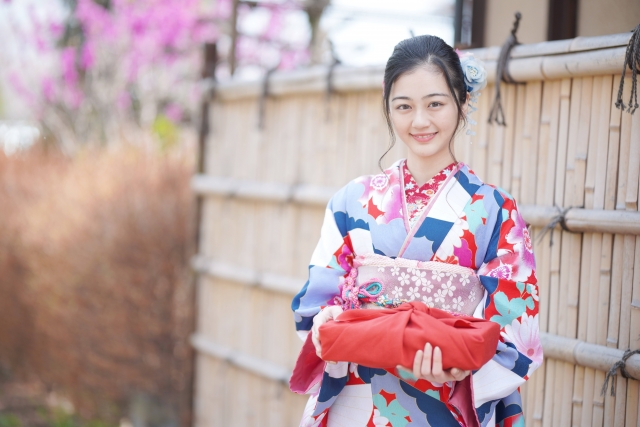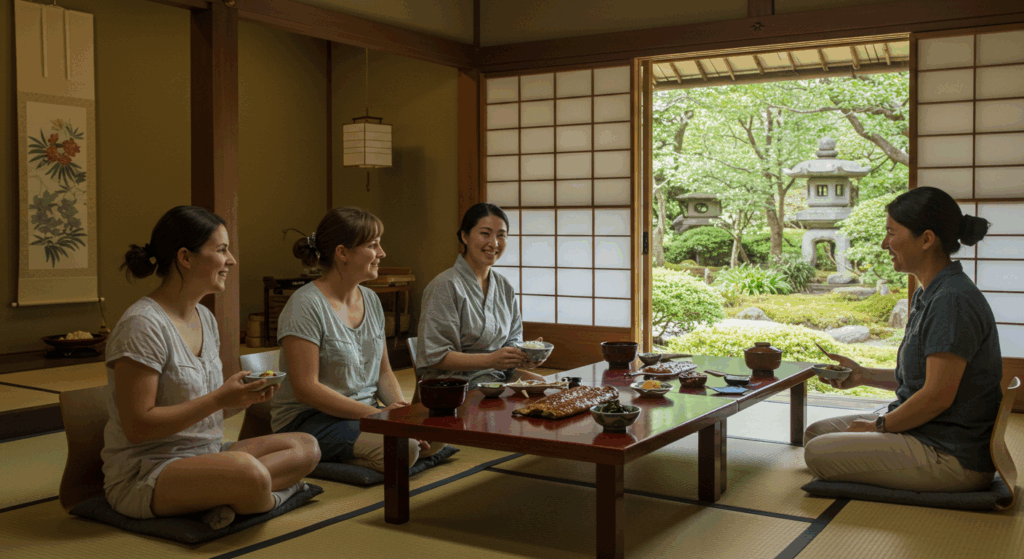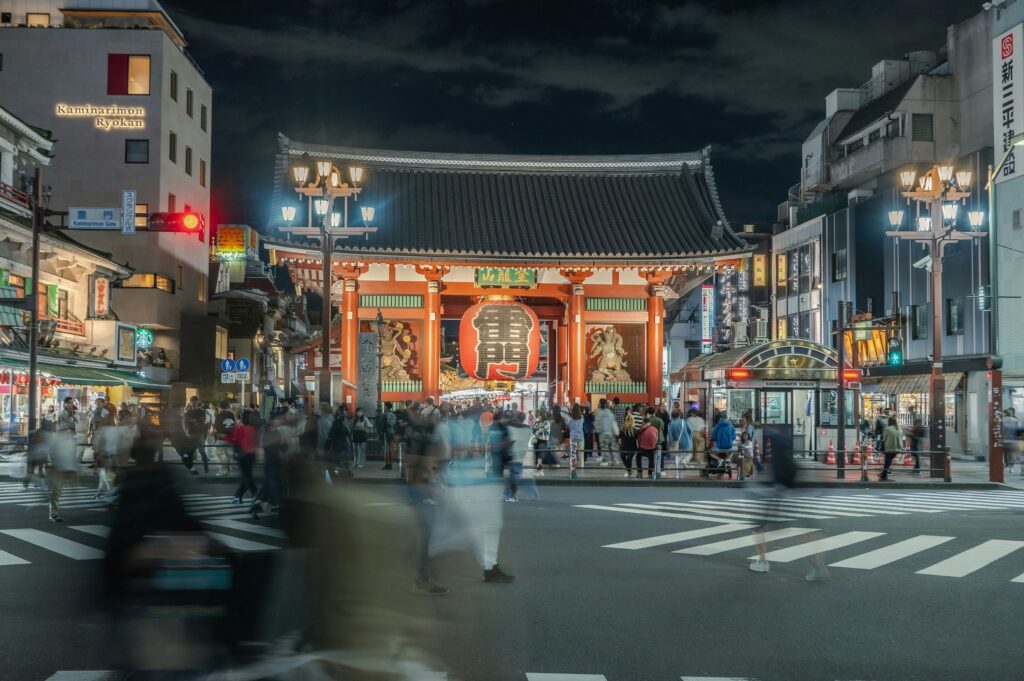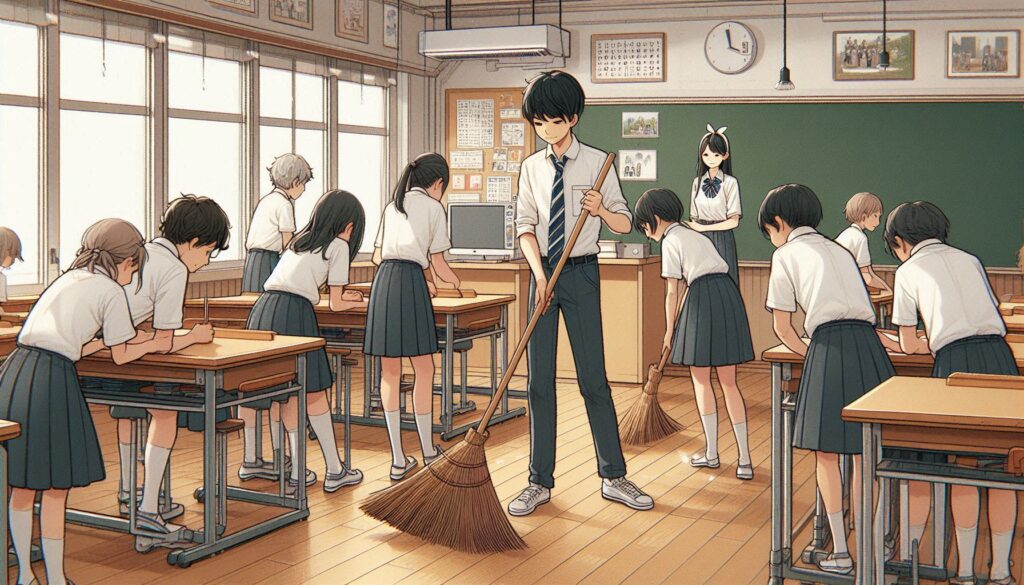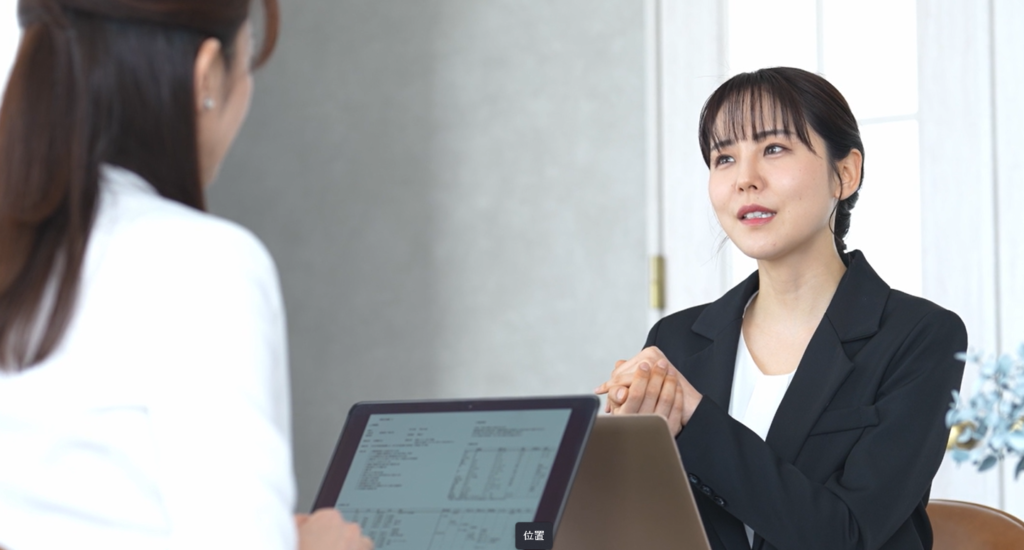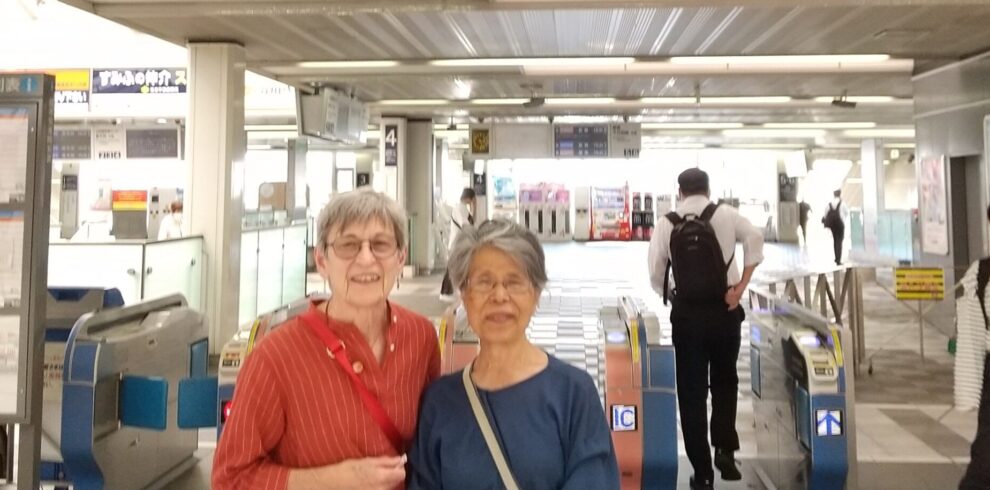Japanese is a language rich with cultural nuance, where even simple phrases carry deep meanings and social context. Whether you’re learning the language, working in a Japanese environment, or simply fascinated by the culture, understanding these everyday expressions can give you a deeper insight into how Japanese people think, interact, and show respect.
In this article, we’ve gathered 10 unique Japanese phrases commonly used in daily life and business. Each one reflects the values of politeness, humility, and social harmony that are central to Japanese culture. Let’s explore the meaning behind these expressions and the situations where they’re typically used.
1. yorosiku (onegai shimsu)
Scene:
- When you meet someone for the first time.
- When you ask someone to do something for you.
- When you start to do something with other
Explanation:
It means “Please forgive my awkward actions and assist me.” This is used commonly in business and daily life. If someone said this phrase first, you should say the same, or “kochirakoso” (me, Too). Usually, the full phrase are said, but in casual meetings. The words in parenthesis are omitted.
2. osewa ni narimasu
Scene:
- When you are invited by someone.
- When hospitality services commence for you
Explanation:
This phrase essentially means, “I apologize for any inconvenience and appreciate your hospitality.” It is a courteous way to express gratitude to the host. When you meet (a)customer(s), you would say “osewa ni natte i masu.” This shows thanks to their continuous support.
3. gobusata shite i masu
Scene:
- When you contact someone again after long time
Explanation:
This is used to show your joy to contact the person after no contact for a long time. This phrase is used also in mail. Similar phrase is (o)hisashiburi desu(long time.no see).
4. daijoubu (desu ka)?
Scene:
- When you see a sick, or injured. or depressed people.
- When you see a person involved in an accident.
Explanation:
Literally, this means “Are you ok? You can reply, “daijoubu desu.” If not, “daijoubu deha arimasen.“ Ypu may use this phrase in many scenes, such as a little trouble. The parenesis words addition becomes polite.
5. otsukaresama
Scene:
- When you see staff working hard.
- When you see staff leaving earlier than you.
- When you see someone complete some work.
Explanation:
This phrase is mostly used at company, and shows thanks, mostly to co-workers. In case of your boss, he/she would choose the similar, but dignified phrase “gokurousama” to their staff.
6. irashai (mase)
Scene:
- When you enter a shop. The staff will say.
- When someone invite you as a guest, he/she would say.
Explanation:
This means “Thank you for coming or you are welcome.” Staff customarily include parenthesis words in their phrases.
7. ojama shi masu
Scene:
- *When you enter the other’s home or office, regardless you are invited or not.
Explanation:
Literally, this means “I’m sorry to bother you.”
8. sumimasenn
Scene:
- When you want to say “Excuse me,”
- When you want to say “Thank you.”
- When you want to say “I’m sorry.”
Explanation:
“Sumimasen” is said when someone helped you or when you bothered someone. But the “
9. ittekimasu
Scene:
- When you leave your home or office, you say the phrase to your family members or colleagues.
Explanation:
This is a Japanese custom. Literally. ”I leave now, but come back.” This is a pair word with “itterasshai,” that people use by seeing you off. It is said during the war time that soldiers said “iki masu.”
10. tadaima
Scene:
- When you return to your home or office, you would say this phrase to inform your family members or staff that you have returned.
Explanation:
This is a pair phrase with “okaerinasai,” that people staying say when you come back.
These 10 Japanese expressions are more than just words—they’re reflections of a culture that values respect, gratitude, and interpersonal connection. From the workplace to the dinner table, these phrases help build harmony and show appreciation in everyday life. By learning and using them, you’ll not only improve your Japanese skills but also deepen your understanding of what makes Japanese culture so unique. Whether you’re planning a trip to Japan, working with Japanese colleagues, or studying the language, incorporating these expressions into your conversations will leave a thoughtful and lasting impression.

